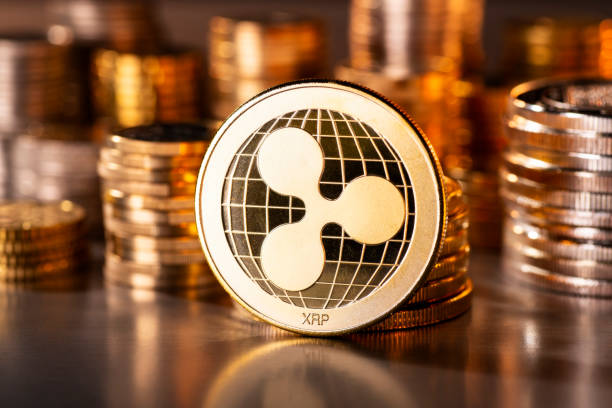While a study of China could occupy a whole library, we limit our attention to just one aspect of its post-WTO history–how did all this play out in the Chinese stock markets. And, importantly, what are the lessons that we, as investors in India, can take away.
Let’s start with this chart:

View Full Image
Without getting into the nitty-gritties of this chart, what it shows is that China became rich at a far faster pace than India over the last 20 years. The Chinese individual genuinely became wealthier over this period.
By now you know what happens when a society becomes rich, right? Every analyst gives that as one key reason why Indian stock markets are going to do extremely well in the years to come. A richer individual spends more money on discretionary items (on holidays, cars, etc.), and tends to upgrade their standard of living (star hotels, premium vehicles). Then there are those who emerge out of poverty, become part of the system and start to consume.
These, and other such themes, should usher in a boom period for Indian companies. Some of this is already visible when you see the queues to buy luxury apartments or premium SUVs.
China has been through this once-in-a-lifetime shift in prosperity already. The question is whether the opportunity played out as one might expect in the stock markets as well. It did, and did not.
Take a look at this chart:

View Full Image
Here we compare the performance of the Chinese stock markets (orange line) vis-à-vis the Indian stock markets. As is apparent, the Indian stock markets (21.7x) are way ahead of the Chinese stocks (1.5x).
The Chinese economy has done well, but its stock markets have not.
The key question that needs to be asked now is, what can we learn from the Chinese stock market debacle?
Let me spell out what I think right away. Economic gains need not necessarily translate into stock market gains.
When you think big picture, there’s a lot that goes into analysing an opportunity and generating a return.
First, the politics of a country. Is it stable with good visibility on the policymaking environment? Is it supportive of growth? And is there rule of law?
Next, one looks at the health of the economy and its prospects.
Then comes the industry analysis, where one looks at the dynamics of the industry and global competitiveness, among other things.
Also, the quality of a company’s management. The ability of the management to deliver long-term growth and profitability with uncompromising integrity.
And finally, the company itself.
We call this the top-down approach to investing. As you can see, there’s a lot that goes into the making of long-term stock market gains. And here lies the clue to why the Chinese stock market story flopped. Let me highlight some reasons.
When Xi Jinping ascended to the top in China, there was much hope. He was seen as someone who would further push China’s integration with the world. Not least because his father was the mastermind of the first special economic zone in China.
Xi himself encouraged that notion. However, he pivoted (whether his by own choice or because he was forced to by Western powers does not matter), and this was something few would have foreseen. This caused immense damage to countries and companies across the world, most of all China itself.
Another issue was Xi’s decision to go after the large corporate groups in China like Alibaba and Tencent to reinforce the dominance of the Communist party. The interventions ran deep and broad, and significantly hit the prospects of companies. The destruction of wealth that resulted from these actions, and from the fear that more would come, was breathtaking.
Also, perhaps, it could be said that China’s decision to stick to the one-child policy for far longer than it should have resulted in destroying the long-term prospects of the country. In 2022, China logged its first decline in population. In the western world such declines are countered by immigration. But we can safely say there’s no queue of people waiting to get into China. And therefore, this decline will potentially hurt the prospects of the country in the long term.
There are so many reasons one can give post facto. But I think the common thread among them is this–in most instances, it was difficult to see what was coming. Something that investors, domestic and international, had not anticipated. And when such things happen again and again, the valuations take a knock.
The net result, a stock markets that looks like China’s.
To quote, Carl Richards: “Risk is what’s left when you think you’ve thought of everything.”
It could not have been said better. And therein lies the lesson for Indian investors.
Everything looks great. The economy will do very well in all likelihood. But will stock prices? That’s a whole different matter.
So even though everything looks great, you still need to exercise caution. Perhaps you could go about this by:
First, ensuring that your overall asset allocation (stocks, bonds/deposits, gold, real estate, among other things) is suited to your needs.
Second, your stock portfolio should be allocated well too. Don’t get carried away with recent returns from small caps. Sure, do own them, but in the right proportion. Usually, the largest chunk should be in blue chips–super well-managed companies with proven moats and high integrity.
Third, be sure to get rid of bad stocks no matter what the prospects. This needs a special mention. Bad stocks take the biggest knock when things turn for the worse.
Fourth, remember that sometimes the stock markets can get ahead of themselves. Even today, it’s not uncommon to see stocks being priced using 10-year earnings. So be sure that when you pick stocks, or funds the valuations leave headroom for you to make a solid return over the long term. A lower valuation also gives you a better margin of safety in case of some near-term adverse events.
Fifth, consider investing globally too to hedge against extreme risk events, which, by definition, we cannot see.
I hope this gets you thinking about risk–the kind Carl Richards talks about.
Rahul Goel is the former CEO of Equitymaster. You can tweet him @rahulgoel477.
You should always consult your personal investment advisor/wealth manager before making any decisions.














